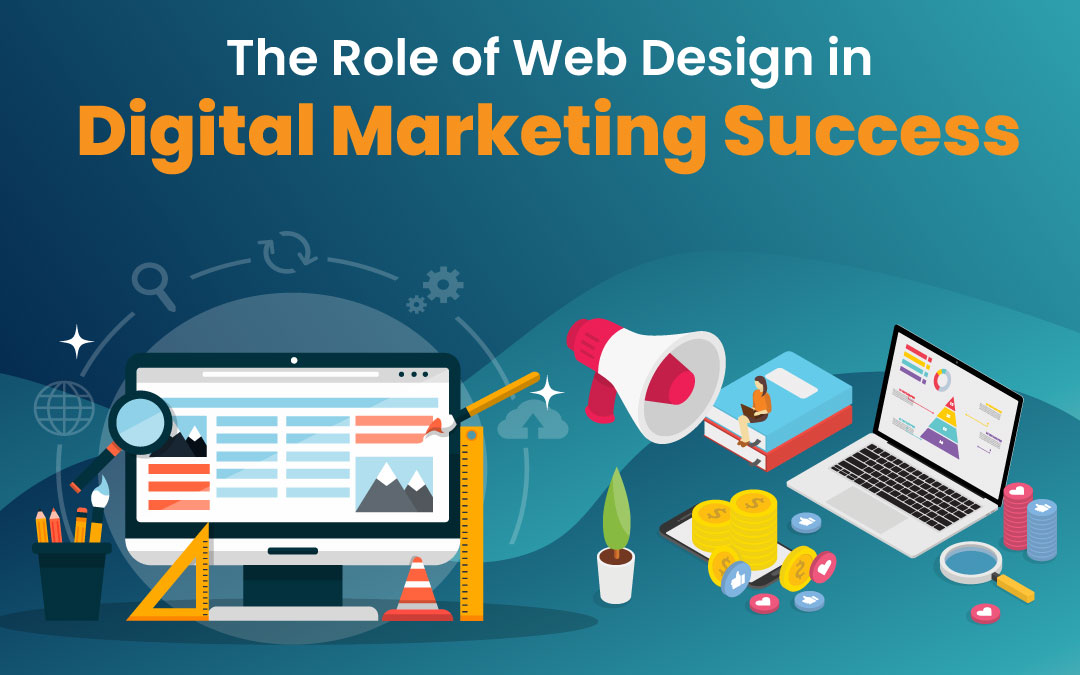
In today’s digital landscape, having a well-designed website is more than just an aesthetic choice—it’s a critical factor in a business’s success. A company’s website serves as the foundation of its online presence, influencing customer perception, engagement, and conversion rates. Effective web design is crucial for creating high-performance websites that not only deliver an appealing visual experience but also drive measurable results, enhancing user engagement and achieving business goals.
Why Web Design Matters in Digital Marketing
Digital marketing encompasses a range of strategies, from search engine optimization (SEO) and pay-per-click (PPC) advertising to social media marketing and email campaigns. However, without a strong website, these efforts can fall flat. Here’s how web design directly impacts digital marketing success:
1. User Experience (UX) and Engagement
A well-structured website ensures users can easily navigate, find information, and complete actions like filling out forms or making purchases. Poor UX leads to high bounce rates, negatively affecting SEO and conversions. Intuitive navigation, fast load times, and mobile responsiveness are crucial elements of modern web design.
2. Search Engine Optimization (SEO) Benefits
Google and other search engines prioritize websites with clean code, fast loading speeds, and mobile-friendly designs. A well-optimized site improves rankings, making it easier for potential customers to find your business. Elements like structured data, optimized images, and a logical URL structure contribute to better SEO performance.
3. Conversion Rate Optimization (CRO)
A beautiful website isn’t enough—it needs to be designed for conversions. Strategic placement of calls-to-action (CTAs), engaging content, and trust signals (like testimonials and secure payment options) all play a role in turning visitors into customers.
4. Brand Credibility and Trust
A professional-looking website builds trust with visitors. Outdated or poorly designed websites can deter potential customers, making them question a company’s credibility. Investing in quality web design shows professionalism and reliability.
5. Integration with Marketing Channels
Your website acts as the central hub for all digital marketing efforts. Whether you’re running Google Ads, social media campaigns, or email marketing, all roads lead back to your site. Ensuring a seamless experience across channels enhances customer engagement and maximizes ROI.
How a Web Design Agency Can Help
If your in-house team lacks the expertise to handle the complexities of modern web design, partnering with a web design agency can be a game-changer. Professional agencies specialize in crafting websites that align with your brand identity while supporting your business and marketing objectives. From responsive design and SEO optimization to e-commerce functionality and performance improvements, a skilled agency ensures your website becomes a powerful tool for driving growth and engagement.
Conclusion
A well-designed website is far more than an optional asset—it’s a necessity for achieving business success. It serves as the cornerstone of your online presence, directly influencing customer trust, engagement, and conversion rates. A thoughtfully designed website not only complements your digital marketing efforts but also amplifies their impact by providing a seamless user experience, enhancing SEO performance, and fostering brand credibility.
Share this post
Leave a comment
All comments are moderated. Spammy and bot submitted comments are deleted. Please submit the comments that are helpful to others, and we'll approve your comments. A comment that includes outbound link will only be approved if the content is relevant to the topic, and has some value to our readers.

Comments (0)
No comment